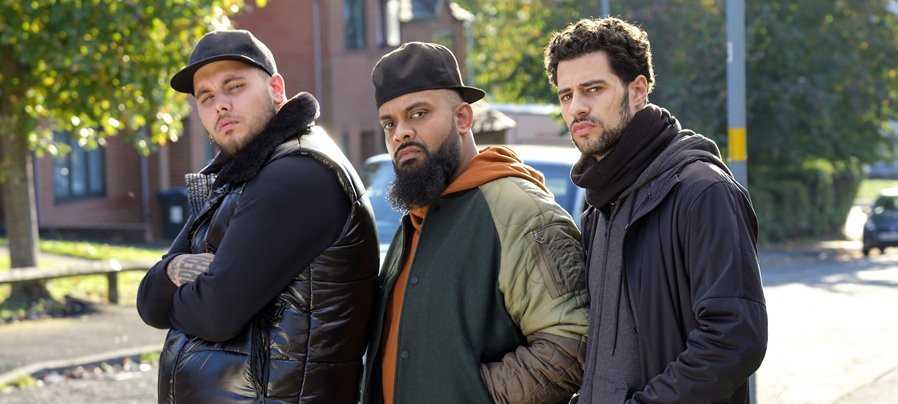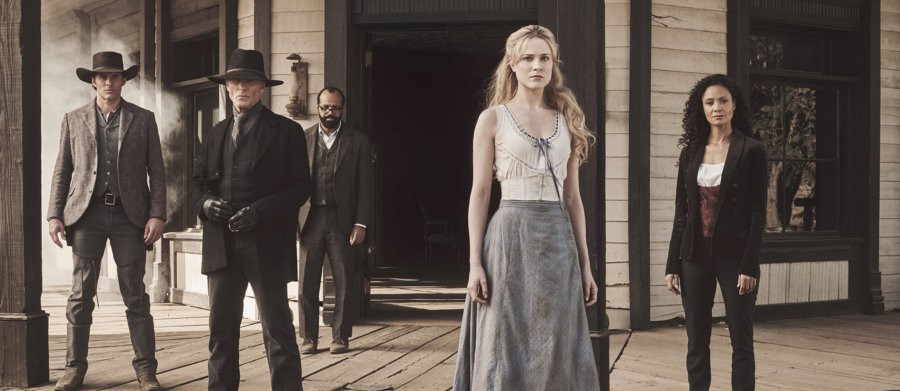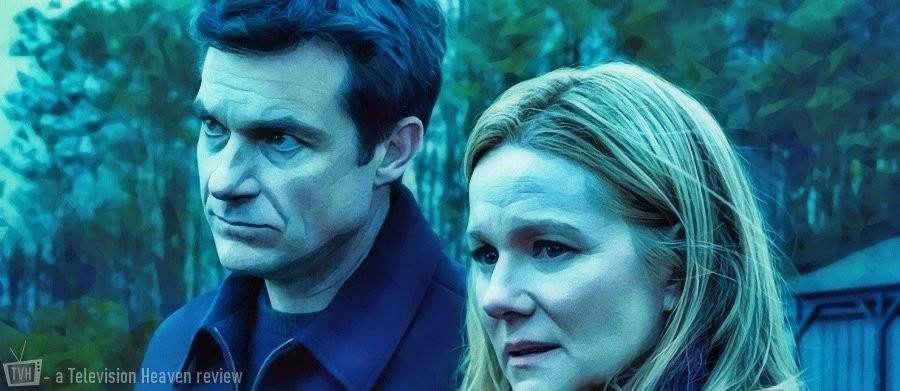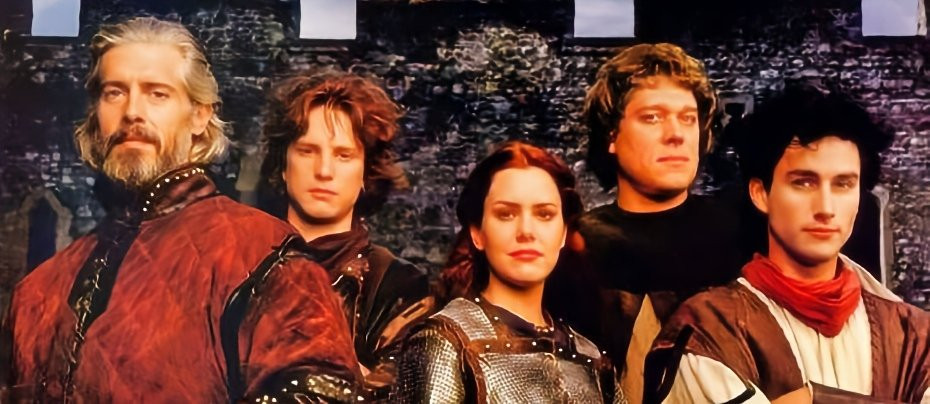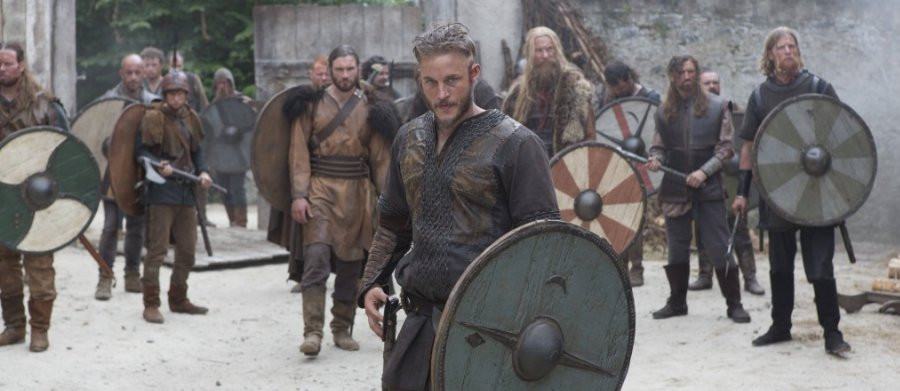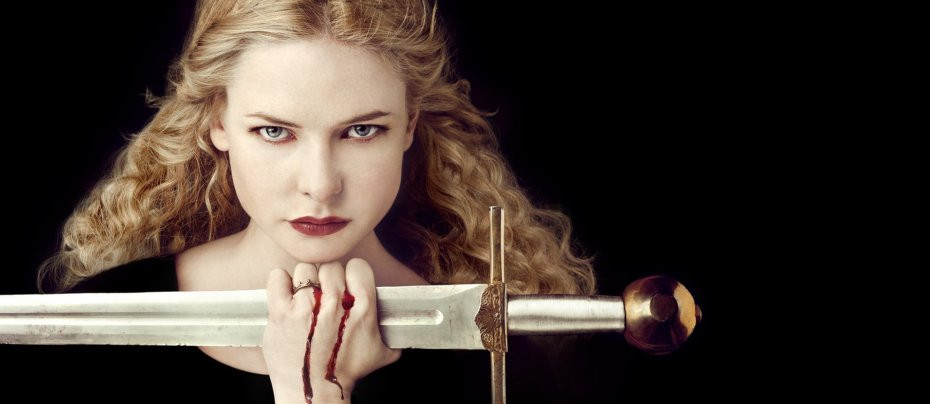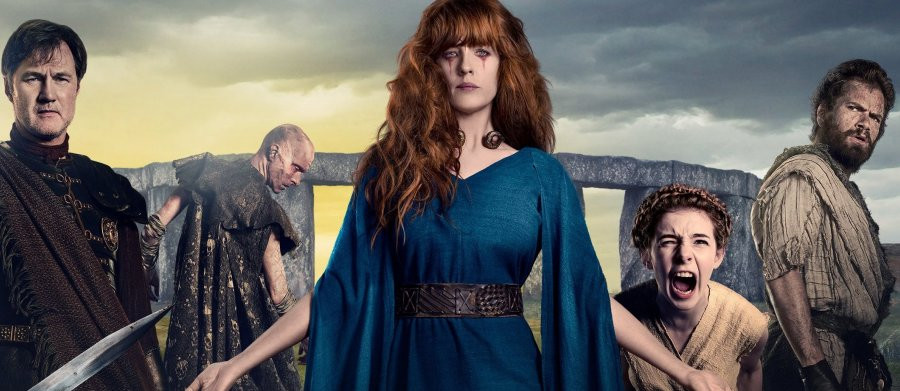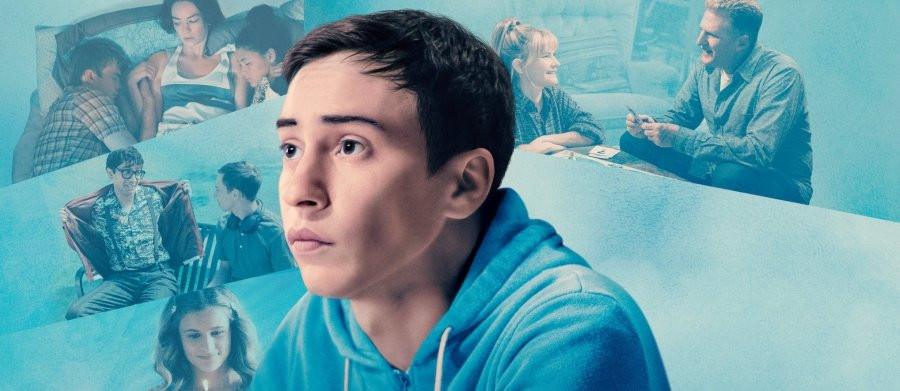
Knightfall
2017 - United StatesReview - JWR
There are Three Stages of Knightfall. Stage One: "A drama series about the Knights Templar - how intriguing!" Stage Two: "This is rubbish." Stage Three: "Actually..."
To put Stage One in its context, the Knights Templar - the Order of the Poor Soldiers of the Temple of Solomon - have had a mixed press over the years. At their height, they were generally viewed as heroes - at least in Christian Europe. Their Muslim opponents obviously had a more negative view of them, and even the chivalrous Saladin executed them immediately on capture. Both perceptions are understandable.
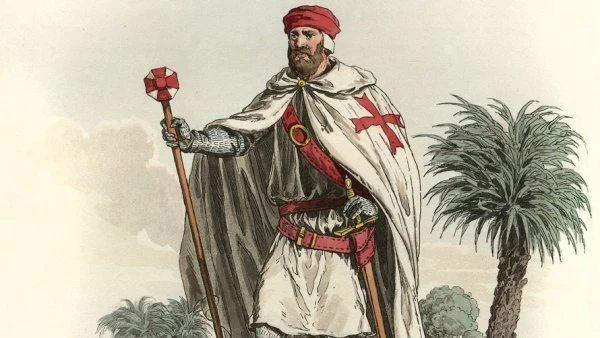
The Templars were warrior monks. Sworn to defend the pilgrim routes to and in the Holy Land, they were highly trained and disciplined religious fanatics. This made them very effective as the elite strike force of the Crusades. Young boys growing up in Christendom would admire them in much the same way that their equivalents in the UK and the USA today admire the SAS and the Navy SEALs. They had no shortage of willing recruits.
Such was their glamour that even William Marshal, later Earl of Pembroke and Regent of England, called by many "the Greatest Knight," rode with them in the Holy Land. He was so impressed that he asked to be buried in their Temple Church in London and may have been initiated into the Order on his deathbed. Their status was such that they were entrusted with vast sums of money. This was their downfall. A bunch of debtors led by King Philip IV of France ganged up on them and seized their assets on false charges of heresy.
This was followed by a deterioration of their public image that continues to this day. In Sir Walter Scott's 'Ivanhoe,' and most of its adaptations, they are a bunch of heavies. In the French television series Thibaud ou les Croisades, broadcast in the UK as Desert Crusader, they perform a similar function, not quite malevolent, just unimaginative.

More recent representations have not held back on the malevolence. In Sir Ridley Scott's opinionated and dangerously misleading feature 'Kingdom of Heaven,' they are the villains, pure and simple. On television the same is true of their guest appearance in an episode of Robin of Sherwood, which at least deserves credit for highlighting their deserved reputation for superior fighting skills.
So the prospect that they might get a rehabilitation was indeed very intriguing. It was also going to be interesting to see how a programme about celibate soldier monks - with, presumably, no women and no sex scenes - could be made attractive to a modern audience.
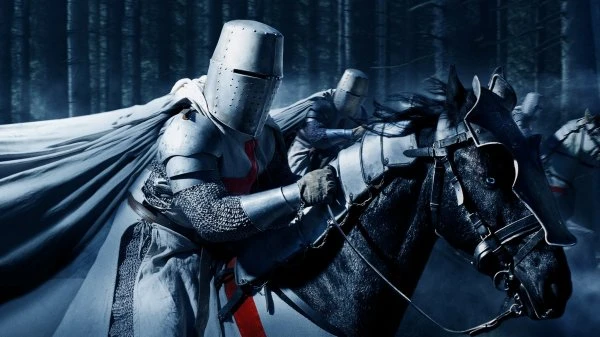
The disappointment - Stage Two - was immediate. It began with some poor CGI scenes, erratic history, and a Henry Lincoln/Dan Brown type conspiracy plot recycling wild theories about the Templars' highly speculative connection with the Holy Grail. There was, of course, female input after all, but in the form of a very unlikely adulterous affair between a fictional leading Templar and a real historical figure of the highest rank. Yawn.
However, for those who are able to stick with it for a while, Stage Three does kick in: things start to get better and eventually there is much to enjoy, so long as one does not take it too seriously.
This might happen to different people at different points. For your reviewer, it was fairly early, when Jim Carter turned up as Pope Boniface VIII. Carter is one of those actors whose mere presence in a project gives it the benefit of the doubt. He bought Knightfall some time and proved to be worth it.
In fact, he turns up a lot - in Paris.

While there were some Medieval Popes who were based in France, Boniface was definitely not one of them. It seems that in the Middle Ages there must have been some special Papal power that enabled Pontiffs to fly from Italy to France at will. Anyway, good old Boniface always seems to be popping out of the woodwork, giving sensible advice, being conveniently helpful, and generally acting like everyone's favourite uncle. What is this? A likeable Pope? There have in fact been a number in history, but not in recent television drama. Something sounds a bit too good to be true here. Keep watching...
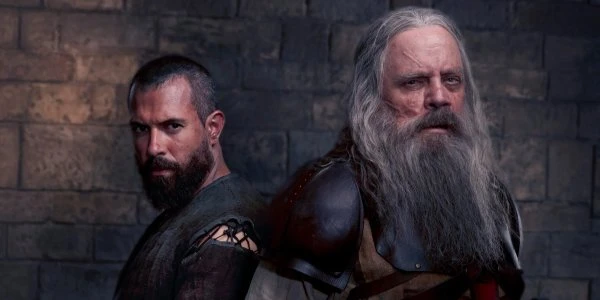
For others, the decisive moment when Stage Three was definitely established came much later, in the second season, when an almost unrecognisable Mark Hamill appeared as a crusty old Novice Master-at-Arms. He is enormously entertaining, well worth the wait. His final scenes throw all attempt at seriousness out of the window - he turns out to be a sort of, well, Christian Jedi - but will surely raise a smile that was lacking earlier in the series.
There has in any case, been a sea change in the show by that point - especially between the first and second seasons.
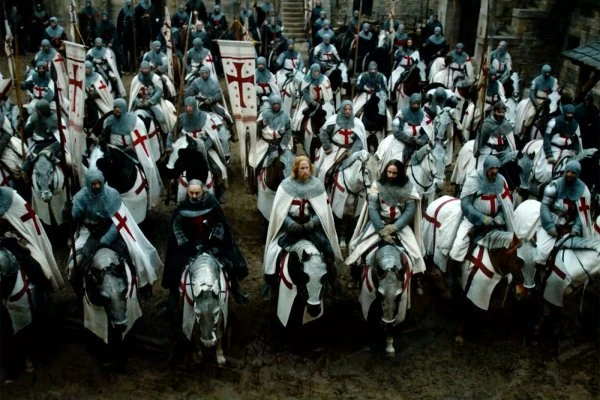
In the first season, the focus is on the Grail plot, complete with the implication that certain Templars are also members of a wider, multi-faith order - the sort of organisation suggested in the novels of Robert Shea and Robyn Young. This fantasy is reflected in the visual style. Some of the better CGI, lovely location work in the Czech Republic, and sumptuous sets turn Medieval Paris and the mountain realm of Navarre into fairy tale kingdoms.
The effect is often quite beautiful - and totally unrealistic. The pristine white mantles of the Templars strike a particularly false note. Keeping them that clean would be difficult enough even with modern technology. They would be totally impossible in the Middle Ages, especially if worn on a daily basis by professional soldiers.
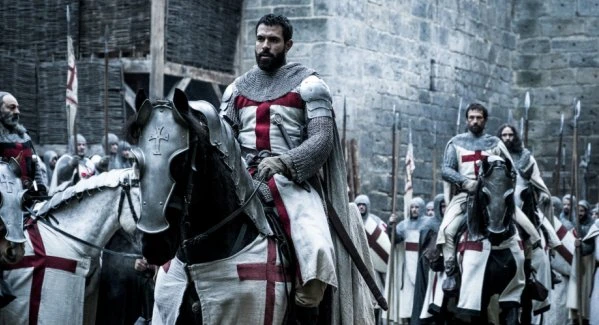
Then a massive fire destroyed many of the splendid sets. To what extent this was the principal cause of what followed only the producers could say but there was soon after a complete change in the visual style accompanied by a complete change in the storyline.
The second season ditches the whole Grail and syncretic order side of things. Indeed, everyone seems to forget about them almost completely. Instead the focus is now on the actual historical event of the fall of the Templars - even if huge liberties are still taken with the facts. This switch from fantasy to history coincides with a more authentic looking visual style taking the place of the pretty one. Everything is suddenly grungier. The Knights' tabards look worn and dirty. Now they look like hardened fighting men.
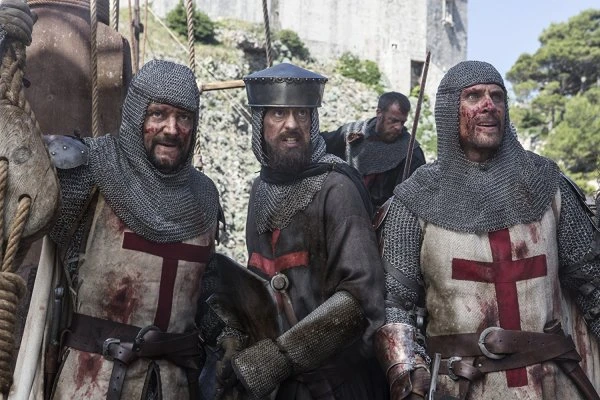
As a result, the second season is much better dramatically if not aesthetically. There is serious thought about what it means to be a Templar. Unusually for modern television drama, there is even a little discussion about Faith, something that frightens modern producers, but which is essential to any honest attempt to dramatise most times and places in Western history.
Apart from Carter and Hamill, the cast is not particularly distinguished, but everyone does what is demanded of them. If Tom Cullen is unconvincing as the overpromoted hero of the first season, that may be because the character as written is unconvincing. He is much better in the second season when demotion forces him on a Spiritual journey as he retakes his Templar Basic Training Course, guided by an initially hostile and sceptical Hamill.

Ed Stoppard is a serviceable villain as King Philip "the Fair," despite not being fair in any sense of the word. Simon Merrells, a memorable if historically unlikely Crassus in the last season of Spartacus, plays the hero's loyal best friend with a hint of Jerome Flynn, while Padraic Delaney is nicely conflicted as the hero's less loyal second best friend. It is not his fault that the character's transitions come across as abrupt and seem to make little sense.
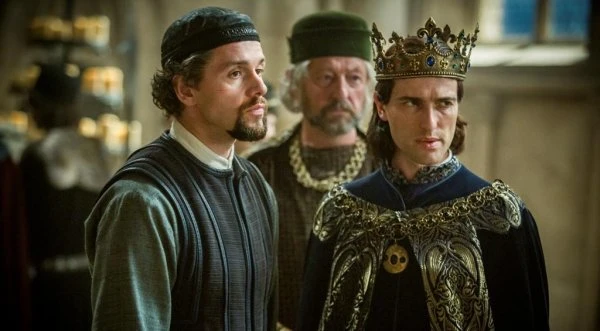
If Pope Jim is favourite uncle, Julian Ovenden plays Philip's fixer de Nogaret as creepy uncle. While both men are given backstories that are entirely fictional, it is historical fact that de Nogaret was a literally violent opponent of the Pope.
In general, like many recent historical dramas, Knightfall cherry picks the main characters and events from history, then makes everything else up around them. This is particularly jarring in the rather artificial "happy ending" - or rather, if not exactly happy, wish fulfilment.

That it is an ending seems certain from what happens - even if, at the time of writing, there is no official cancellation. This is the way things tend to be done these days. In any case, it is difficult to see where the story, and surviving characters, might go from here, now that the main historical events of the premise are complete, and the Knights Templar are well and truly fallen.
Yet it is sad that the show finished just as it was beginning to find its groove in the second season. If it had started on that track and stuck to it, the raw material was there for it to build slowly to the tragedy over several seasons. Then it might have been a truly great drama.
Seen this show? How do you rate it?
Seen this show? How do you rate it?
Published on March 24th, 2020. Written by John Winterson Richards for Television Heaven.


